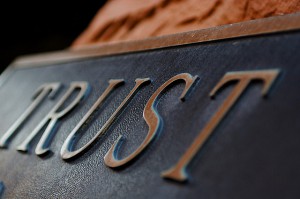Editor’s note: As we celebrate Ethics Month this September, PRSA invited members of the Board of Ethics & Professional Standards (BEPS) to provide their views and thoughts on the pressing ethical issues affecting the PR industry. Track the series and join the discussion by using the hashtag #PREthics. For a full list of Ethics Month activities visit the 2014 Ethics Month section of the PRSA site.
Ethics is about trust. In today’s world we tend to spend a lot of time talking about reputation, and reputation management. But, from a management perspective reputation management is predominantly a public relations concept. The management equivalent and much more powerful concept is trust. One of the most interesting commentaries on trust from a chief executive I’ve ever heard was a statement by James Burke who was the chief executive of Johnson & Johnson at the time of the Tylenol murders.
During an interview about his management during the Tylenol events he said, ”Doing what’s right, works. The cynics will disagree, but they are wrong. It comes down to institutional trust. In our case, trust with our customers built over more than 100 years. Trust, in my view is real, palpable and bankable.”
Trust is the principal outcome of ethical behavior. I define trust as the absence of fear. And fear as the absence of trust. The issue for most of us is thinking about what trust actually is, the behaviors that lead to trust, maintain trust, and help restore trust, when problems occur.
The single most powerful ingredient of trust is disclosure. Powerful, productive and permanent relationships are built on the trust that disclosure establishes. Virtually every ingredient in PRSA’s Code of Ethics assumes or explicitly talks about disclosure.
The PRSA Board Ethics and Professional Standards (BEPS) is developing more specific guidelines and guidance. BEPS’s working definition of disclosure is: “the intentional release of information to facilitate transparency, openness, access and accountability.”
Disclosure is about “candor” which I define as, ”truth with an attitude, delivered very promptly.” I joke, in my lectures, about why we don’t trust certain relatives. For one thing, they’re always right. But, they’re always right a week after you really needed the information that they had but failed to supply that would have helped you. Trust is built on having crucial information before you need it.
Yes, disclosure can be complicated. Sometimes information belongs to someone else and they control its release. Sometimes lawyers advise that we withhold information for a variety of important, credible reasons. Yet, in my experience, when trust is at stake, disclosure turns out to be the most powerful trust restorative and rejuvenating action.
Trust building is also one of the greatest responsibilities of leadership. We often complain as practitioners that attorneys have more influence than we do. Practically speaking, the lawyer’s ability to influence is far more limited than ours. But the ultimate point is that staff and external advisors such as public relations, law, human resources, strategic planning, security, and the other staff functions are just that, advisors. The decision for important action in organizations comes from the leader and the leadership rather than any staff function.
Leaders who can’t be trusted, or who fail to build trust ultimately lead organizations that make mistakes and misbehave. Scandals, embarrassment, every problem causing disconnect we read or learn about, experience, or observe involves, at some level, the failure to share, be candid, or to fully disclose essential information.
If trust is what you seek or need, then disclosure and candor, openness with speed, are your guiding principles.
James E. Lukaszewski ABC, APR, Fellow PRSA is Co-Chair of the PRSA Board of Ethics and Professional Standards (BEPS).







